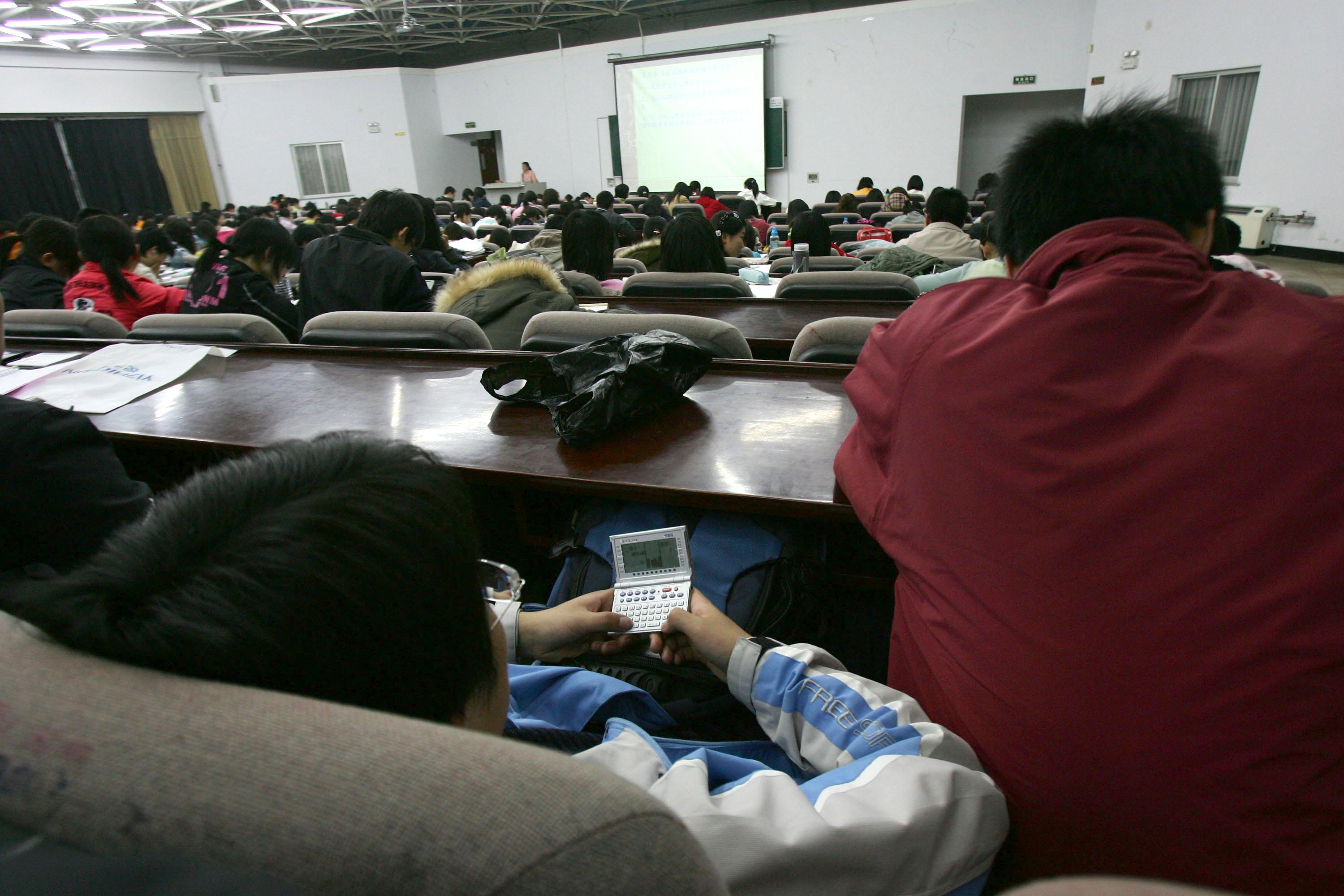For the 2015 spring semester at the University of Pennsylvania, English students have the option of taking a creative writing seminar called “Wasting Time on the Internet.” From 2 to 5 on Wednesdays, they can earn course credit by doing nothing in front of a screen. “Students will be required to stare at the screen for three hours, only interacting through chat rooms, bots, social media and listservs,” elucidates the class description. “Distraction, multi-tasking, and aimless drifting is mandatory.” It sounds deeply unpleasant, though somehow it is also exactly how I would naturally spend 180 minutes of free time. The students’ work, under the tutelage of professor Kenneth Goldsmith—a Slate contributor!—does not stop at beedogs.com, however. (Well, all things—no matter how evanescent—fleetingly pause at beedogs.com, because how could you not.) Having soaked in the seamy tidal pools of the Internet all afternoon, undergrads are asked to go home and turn their experiences into art.
The course is dedicated to the “alchemical recuperation” of mindless scrolling. I’m not sure precisely what that means, unless “alchemical recuperation” is code for “this is really an experiment put on by UPenn’s psych department.” There are some clues to what Goldsmith is after, though: “What if these activities—clicking, SMSing, status-updating, and random surfing—were used as raw material for creating compelling and emotional works of literature?” the catalog wonders. “Could we reconstruct our autobiography using only Facebook? Could we write a great novella by plundering our Twitter feed? Could we reframe the internet as the greatest poem ever written?”
Could we Snapchat with all the colors of the wind? These are not new questions (though they are—jokes aside—pretty interesting, and if you’re going to pose them, it might as well be in a college creative writing seminar). Amid the explosion of Twitter fiction and a swell of writing that generally moves to Internet rhythms—Emily Gould’s emoji-strewn novel Friendship is one of many, many examples—it’s worth asking whether literature should reflect the ecology of the Web or stick to its print-era guns. “There’s something beautiful and absolutely genuine about [social media],” wrote Dani Shapiro in the New Yorker two months ago. But Facebook can also “feel thin and undigested, a skimming over of data rather than a deep sink into the specificity and emotional reality of human experience.” She concludes: “I worry that we’re confusing the small, sorry details—the ones that we post and read every day—for the work of memoir.” She might as well have said, “for the work of writing.”
Of course, Shapiro was imagining a process devoid of alchemy, of reflecting on the hours spent clicking and skimming until that time is transformed. And anyway, none of this is likely to constitute people’s main gripe with Dicking Around Online 101. Says the catalog: Students “will bolster [their] practice” (practice!) by exploring “the long history of the recuperation of boredom and time-wasting” (huh?) “through critical texts about affect theory, ASMR” (there are critical texts about ASMR?!), “situationism and everyday life.” How does one read all that and not decide that what’s truly going on is some first-rate academic trolling? Indeed, when I reached out to a real live academic—a graduate student in English at Harvard—she wistfully responded, “I wish colleges would educate their students instead of trying to appeal to the hip or exciting. … I can see how the postmodern fascination with ‘recuperating’ things is at play here and—without finding it totally devoid of interest—it seems more meaningful to teach people things that don’t need recuperating (like, say, the Aeneid).”
While the Aeneid does not feature in the spring 2015 course offerings from the University of Pennsylvania English department, there is a course entirely about black and grey (“How do these muted colors challenge us to think differently about color and society?”), as well as one on “Performing Science.” What a lamentable murk of problematism now befogs this spectacle of unseriosity, the American college.
Who am I kidding? These classes sound awesome. Hopefully the MOOC versions will come out soon.
